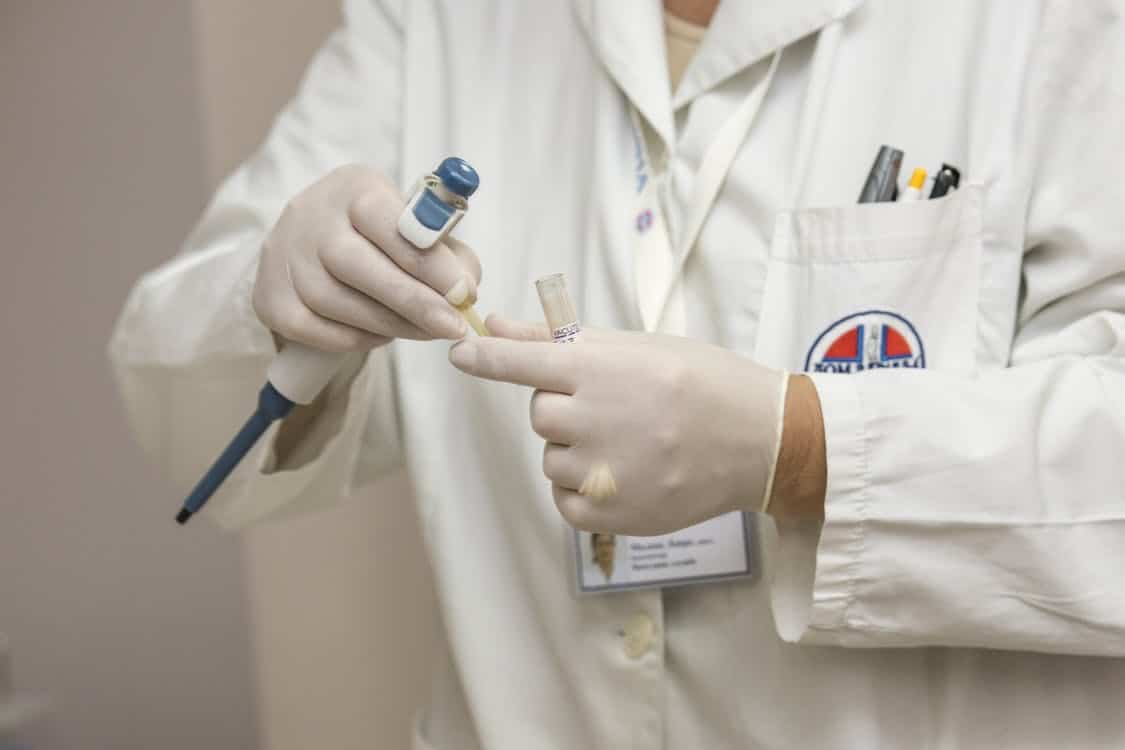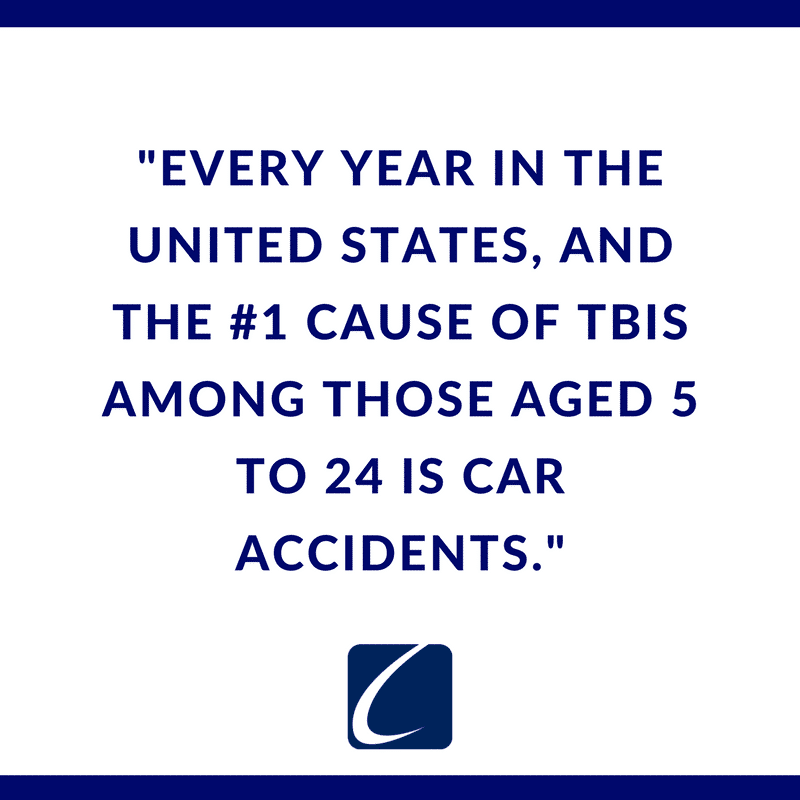Traumatic Brain Injuries Are Far Too Common
One million — that’s the number of children and adolescents who suffer brain-damaging concussions every year in the United States, and the #1 cause of TBIs among those aged 5 to 24 is car accidents.
When someone carelessly crashes into another vehicle, victims are often left trying to figure out the extent of their injuries. With complicated brain injuries, they sometimes see doctor after doctor only to find that there’s “nothing wrong” even when they know something is affecting their ability to get through their day-to-day routine.
Attorney Tom Crosley has a long history of dealing with complex brain injury cases. He has worked with experts like researchers at the University of California to pioneer new methods of detecting brain injuries and using them as evidence in personal injury cases.
RELATED: Tom Crosley Achieves $16,028,324 Jury Verdict Award for Traumatic Brain Injury Victim
And he has enlisted the support of medical experts, like Dr. Brent E. Masel, M.D. in the department of neurology at the University of Texas Medical Branch, to consult on cases and get TBI victims help and treatment they need.
In fact, a new technology has recently been developed that Tom Crosley and the attorneys at Crosley Law Firm are using to help traumatic brain injury victims prove their injuries and get the justice and compensation they deserve. Below, we will discuss some of the problems that currently exist in diagnosing TBIs as well as an innovative new piece of evidence that is coming into play during court cases: Victims’ saliva.
Concussions Difficult to Diagnose — Especially Among Children and Adolescents
On top of the serious, growing problem of rising traumatic brain injuries is the fact that it’s difficult to get an accurate prognosis for a concussion, especially if the victim is a child or young adult.
Currently, the best method for diagnosing a concussion victim involves administering a survey conducted by a medical professional. However, this method has serious limitations because it relies on the subjective interpretation of symptoms by a doctor. The survey also can’t accurately predict how long concussion symptoms such as nausea, fatigue, headaches, and difficulty concentrating will last for any individual victim.
Another complicating issue is that clinical concussion guidelines are designed for adults rather than children, even though children and young adults make up the majority of concussion victims according to the American Academy of Pediatrics (AAP).
Lastly, brain scans cannot always detect mild traumatic brain injuries.
RELATED: 4 Signs You May Have an Undiagnosed Traumatic Brain Injury
Penn State Researcher Pioneers New Concussion Evaluation Method
However, one physician and researcher has developed a new test that can improve doctors’ ability to develop an accurate prognosis for concussions, especially in children and young adults.
NPR reports that Dr. Steven Hicks, an associate professor of pediatrics at Penn State Hershey, has been testing a method of concussion evaluation that involves collecting genetic material from saliva. The new test is nearly 90% accurate in predicting whether a concussion’s symptoms will last for at least on month.
“A pediatrician could collect saliva with a swab, send it off to the lab and then be able to call the family the next day,” Hicks told NPR.
In contrast, the existing survey method delivers accurate results less than 70% of the time.
Currently, children’s concussions can be especially difficult to treat because the symptoms of mild concussions are not always detectable through tests such as an MRI. As a result, doctors often rely on self-reporting of symptoms from the child, who may downplay their symptoms or not even be fully aware of them.
Implications of Saliva-Based Concussion Testing for Adults
Saliva-based tests, Dr. Hicks says, are not only a promising option for an accurate and non-invasive method of evaluating concussions in children. They have the potential to improve concussion diagnosis and treatment for adults as well. Athletes, military personnel, and others at higher risk for head injuries could all benefit from timely, objective, and accurate diagnoses of their condition to prevent further injury and develop a sound treatment plan.
Saliva-based brain injury tests are also becoming important tools in the legal system as well. In a personal injury cases, a saliva test can serve as objective evidence of the presence of a concussion, even when other tests, like MRIs, come up negative.
The team at Crosley Law Firm is not only investigating this technology for future use, but pursuing it as evidence in current cases. This additional documentation supports an injured person’s story and can help turn the tide in complex brain injury cases where TBI victims are up against big insurance companies.
Often, these victims are simply trying to get the compensation they deserve after a careless driver has caused their injuries and altered their lives forever.
Crosley Law Firm: Leaders in Brain Injury Litigation
While saliva-based test methods for brain injuries are just emerging as evidence in court cases, Crosley Law Firm has already developed established innovative and effective ways to present evidence of brain trauma during personal injury litigation. Medical documentation, testimony from the injured person, and expert witnesses can all be used to as evidence of a traumatic brain injury in court. And Crosley Law Firm will tap every resource available — including brand new science — to help prove their clients’ cases.
At Crosley Law Firm, we work with brain injury experts to give voice to victims’ pain and fight for the compensation they deserve. We also handle personal injury cases on a contingent-fee basis, which means that you won’t pay attorney’s fees unless we achieve a financial recovery in your case.
If you or someone you love has suffered a brain injury due to someone else’s negligence, call our offices today at 210-LAW-3000 or fill out a brief contact form on our website to set up a free initial consultation and speak with an attorney at no risk to you.
References
Hamilton, J. (2017, May 4). Spit test may reveal the severity of a child’s concussion. National Public Radio. Retrieved from http://www.npr.org/sections/health-shots/2017/05/04/526782407/spit-test-may-reveal-the-severity-of-a-child-s-concussion
Payne, M. (2017, August 31). British researchers testing theory that you can diagnose a concussion through saliva. The Washington Post. Retrieved from https://www.washingtonpost.com/news/early-lead/wp/2017/08/31/british-researchers-testing-theory-that-you-can-diagnose-a-concussion-through-saliva/?utm_term=.05a919762008
Saliva test predicts prolonged concussion symptoms in children. (2017, May 4). American Academy of Pediatrics. Retrieved from http://www.aappublications.org/news/2017/05/04/PASConcussion050417
TBI: Get the facts. (2017, April 27). Centers for Disease Control and Prevention. Retrieved from https://www.cdc.gov/traumaticbraininjury/get_the_facts.html
The content provided here is for informational purposes only and should not be construed as legal advice on any subject.










